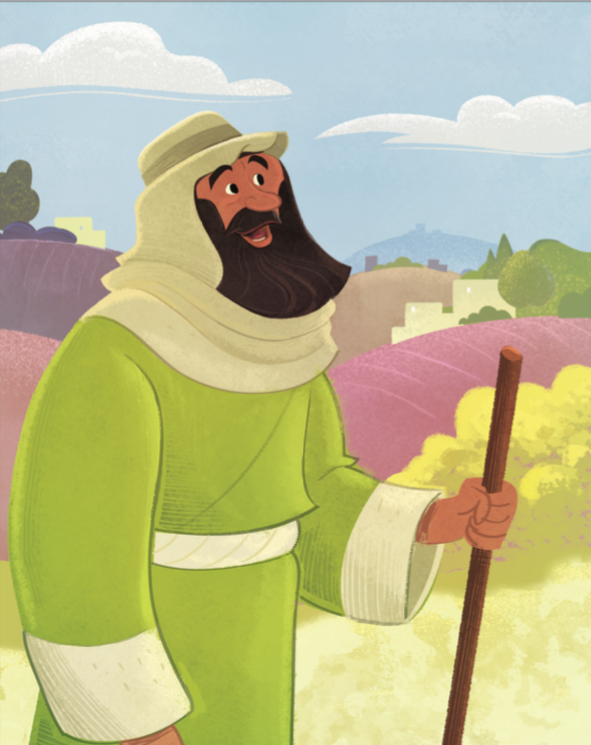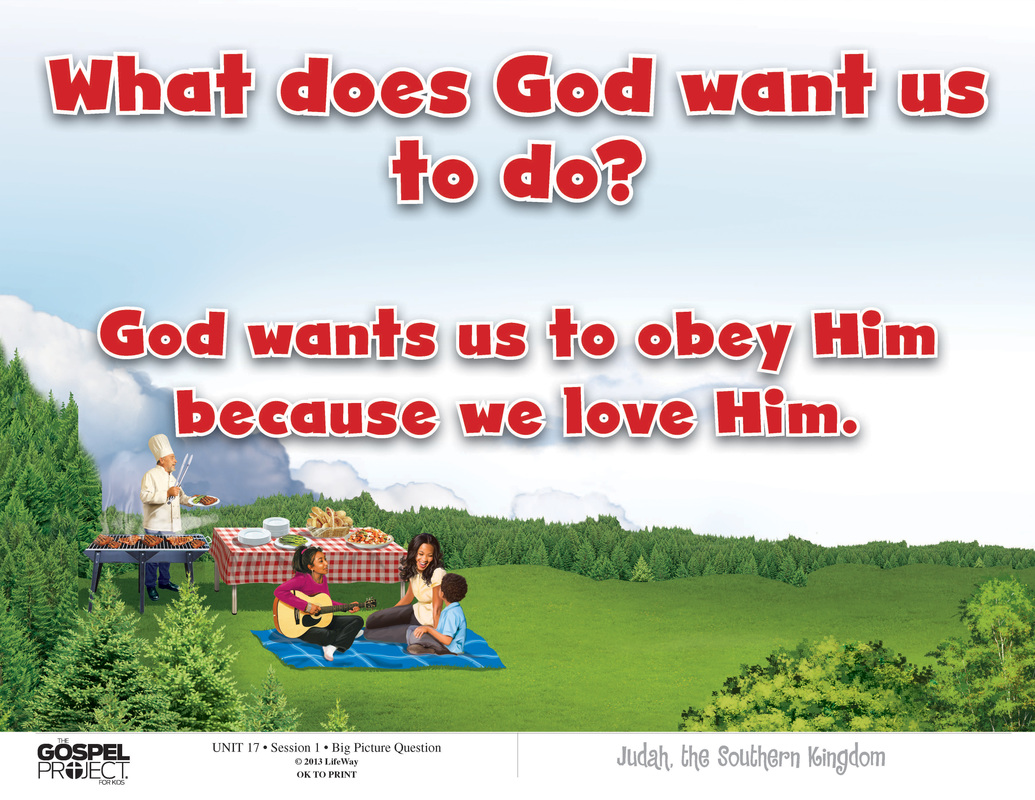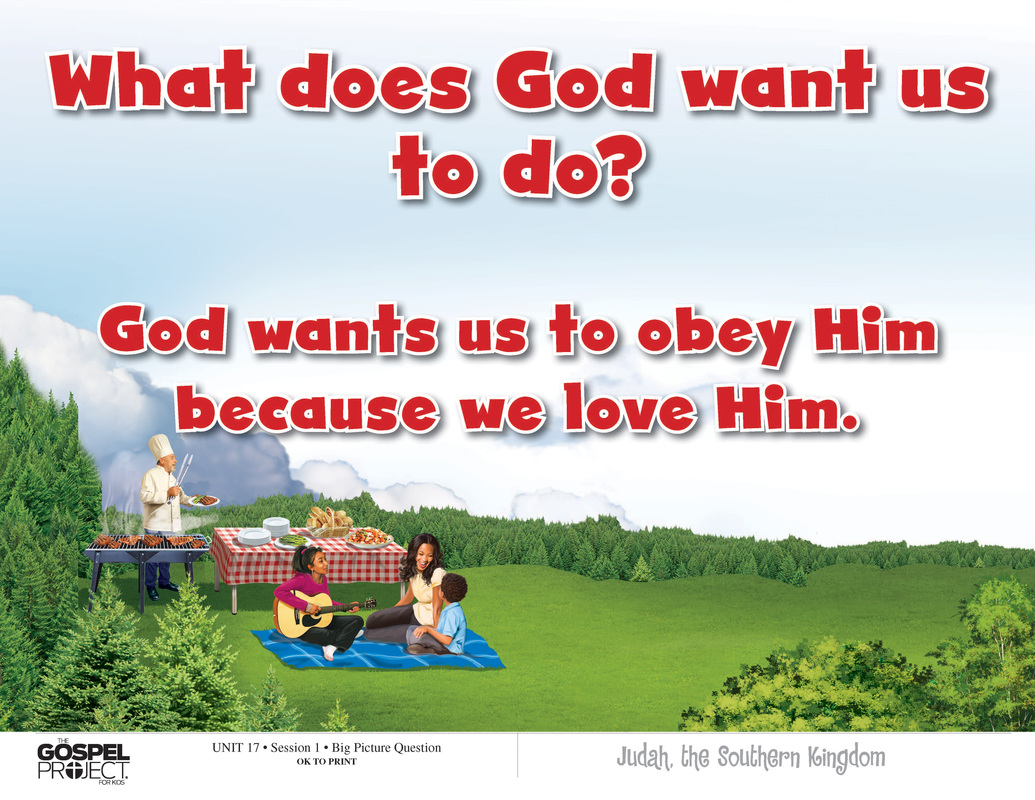Micah, Prophet to JudahDear Parents,
Today’s Bible story in the The Gospel Project® for Kids focuses on the four servant songs in the Book of Isaiah. These songs describe the working out of God’s plan of redemption through the innocent substitute—the Messiah—who would suffer for the sake of sinners. Through the Messiah, God would bring sinners back to Himself. The fourth and final Servant song is found in Isaiah 53. Isaiah provides an answer to the question, How can a just God justify the ungodly? How can He declare innocent those who are guilty? How can He love people like us? A just God can’t just look the other way. That’s cheap grace. Sin against God is a big deal. God didn’t just forgive our sins, He dealt with them. The price? God’s own Son. Jesus fulfilled Isaiah’s prophecies of a suffering servant. People assumed God had cursed Jesus for His own sins, but Jesus was sinless. “He was pierced because of our transgressions, crushed because of our iniquities; punishment for our peace was on Him.” God planned a very long time ago that Jesus would die on the cross for our sins. Seven hundred years before Jesus was born, the prophet Isaiah wrote that this would happen! Jesus was the servant who suffered so that those who trust in Him could be forgiven. |
Micah, Prophet to Judah
Micah 1–7
Micah was a prophet from a village in Judah. God’s message came to Micah in a vision, and Micah told God’s people what God said. The message was about God’s people in the Northern Kingdom of Israel and the Southern Kingdom of Judah.
God’s people did not love and obey God. Instead, they worshiped idols, took what was not theirs, and listened to false prophets.
Micah spoke to the people. “Listen up!” he said. “God is coming to judge you for your sin.” Micah said that God was going to destroy Samaria, the capital city of Israel. He was going to break all of the idols.
“You’re guilty, too!” Micah said to the people of Judah. They had also sinned against God. “Bad times are coming. Your children will be taken— exiled—far away from their homes.”
God’s people had done terrible things, and they deserved to be punished. Micah said, “This is what God says: ‘Trouble is coming, and you won’t be able to stop it. You will be ruined!’”
“Stop it!” the people spoke up. “Stop telling us these things. They will never happen here! Not to us!”
But Micah wouldn’t stop telling them God’s message. “You have done very bad things,” he said. “If you had done what was right, I’d be bringing you good news!”
Next, Micah talked to the rulers of God’s people. “Listen!” Micah said. “You know what is right, but you don’t do it. You hate what is right and love what is wrong. The judges take money from the people in court. Whoever pays the most wins their case! The priests only teach the people when they have been paid. You are sinning and you don’t even care! It’s your fault Jerusalem will be destroyed.”
God was right to punish the people for their sin. God had a promise for His people though. Micah’s next message from God was a message of hope. He said that one day God would restore Jerusalem to the way it was supposed to be.
“One day, there will be no more ghting,” Micah said. “The people of Jerusalem who are taken away to Babylon will be saved. God will rescue you from your enemies. God will make you strong.”
Then Micah told the people that someone was coming—a ruler for God’s people. He would come from Bethlehem, a small town in Judah. “He will be a king, ruling Israel with the power of God. He will lead His people like a shepherd leads a ock of sheep. The people will be safe. People all over the world will know that He is great. He will bring peace.”
How should God’s people respond to this good news? Punishment was coming, but then God would save them. Micah called the people to repent—to turn away from their sins and turn back to God.
“What does God want from us?” the people wondered. Maybe the people should bring burnt offerings. Would God be happy if they sacri ced their children to Him? “No,” Micah said. “The Lord has told you what
is good and what He wants from you: to act justly, to love faithfulness, and to walk humbly with your God.”
The prophet Micah spoke to God for the people. He confessed their sins. “No one here can be trusted,” Micah said. “None of them are friends; they are all enemies. I will look to the Lord for help. My God will hear me.”
God comforted His people. One day, God would rebuild the walls, and people would come back to the land. God would do miracles like He did when He led His people out of Egypt. People would see that God is powerful.
“Who is a God like You?” Micah asked. “You take away people’s guilt. You do not stay angry with people forever because You love to be kind to them.”
“God will comfort us again!” he said. “He will remove all of our guilt and throw our sins into the deep sea. God will keep His promises and show us compassion like He showed Abraham long ago.”
Christ Connection: The prophet Micah gave God’s people a message of hope: a leader was coming who would free God’s people. He would be a shepherd and a king. The righteous ruler promised through Micah is the Lord Jesus Christ.





